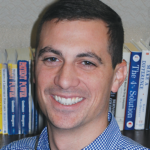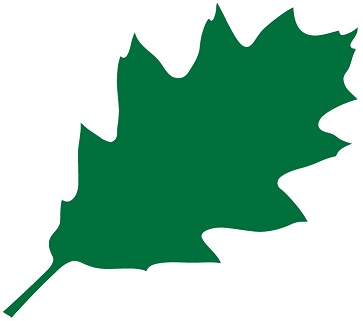Nuclear Energy Institute President and CEO Marvin Fertel said in a recent interview the administration of President-elect Donald Trump will be “much more positive than negative” for the nuclear industry. Fertel went on to cite Trump’s decision to tap Sen. Jeff Sessions (R-AL) as the country’s next attorney general, a man he says “has always been a very big supporter of nuclear energy.”
Nuclear power is America’s largest source of clean-air, carbon-dioxide-free electricity. It produces few, if any, air pollutants or greenhouse-gas emissions. Nuclear power can produce a
vast amount of power from a tiny volume of fuel and requires less land than other
so-called “green-energy sources,” such as wind. An average nuclear power plant occupies about
one-third of 1 square mile, whereas a wind farm must use up to 200 square miles of land to
generate the same amount of power. The nuclear energy industry also has a proven track record of safety.
Scientist James Conca argued in a recent Forbes article 2016 was an active year for the nuclear power industry in the United States and internationally. “Currently, there are 450 nuclear power reactors in operation globally, 98 in the United States … Sixty new plants are under construction, five in the United States.”
However, Conca argues nuclear power faces a difficult battle, because even at a low cost of 5 cents per kilowatt hour (kWh), “They cannot compete with cheap natural gas and wind energy that is subsidized at 2.3¢/kWh. Solar is even more heavily subsidized, usually over 10¢/kWh, but up to 54¢/kWh in some states like Washington.”
Michael Shellenberger, the founder and president of Environmental Progress, argues in a recent USA Today article nuclear energy’s recent problems (in certain parts of the country) are not because nuclear power is uneconomical. Shellenberger says the issue is they are punished by discriminatory policies that treat one zero-carbon energy option more favorably than another. “In 2013, solar received 281 times more in subsidies per unit of electricity than nuclear, while wind received 17 times more, according to the U.S. Department of Energy’s Energy Information Administration. As a result of this perverse incentive, some nuclear plants that produce power at costs lower than the wind subsidy could be forced to close.”
Although governments have unfairly favored renewable energy, they shouldn’t make the same mistake with nuclear power by doling out subsidies or mandating the use of nuclear energy. They should instead lift the undue regulations currently placed on the nuclear power industry. This would lead to an expansion of nuclear energy in the United States, which would be beneficial to the environment, economy, and to the stability of the U.S. power grid.
What We’re Working On
Budget & Tax
Federal Lawmakers Compile Wish List for Regulatory Rollback
Ben Johnson writes for Budget & Tax News congressional Republicans are preparing a wish list for repealing federal regulations they hope President-elect Donald Trump will use when he takes office on January 20. U.S. Rep. Mark Meadows (R-NC) told reporters in December he is sending Trump a 21-page report detailing federal regulations requiring executive action to be rolled back or reviewed. The report lists 232 federal regulations. One suggested repeal is of a U.S. Department of Labor regulation known as the “overtime rule,” which requires business owners to pay all salaried employees receiving less than $47,476 annually higher wages for time worked above 40 hours per week. Read more
Education
Religious Education Has Benefits Secular Ed Lacks
In this article for School Reform News, writer Ashley Bateman highlights a new study from researchers at Rice University and the University of Arkansas titled Losing My Religion? The Impact of Spiritual Cues on Noncognitive Skills. The study suggests having students think about religion increases their political tolerance and ability to delay gratification. The researchers randomly assigned 180 secondary students at a public boarding school to an experimental task with religious, secularized, or neutral cues. “Since students were randomly assigned to this religious cue treatment, regardless of personal religious beliefs or family background, our findings suggest that the benefits that religiously educated students experience can likely be attributed in some part to these religious schools,” one of the study’s authors told Bateman. Read more
Energy & Environment
Research & Commentary: Nationwide Study Finds Communities Benefit from Fracking
In this Research & Commentary, Policy Analyst Tim Benson discusses a new National Bureau of Economic Research study that finds fracking has brought $64 billion in yearly household benefits to nine shale basins. These benefits include a “a 7 percent increase in average income, driven by rises in wages and royalty payments, a 10 percent increase in employment, and a 6 percent increase in housing prices.” The study, conducted by researchers at the University of Chicago, Princeton University, and the Massachusetts Institute of Technology, is the first nationwide study of its kind and “the most comprehensive assessment to date,” according to the authors. Read more
Health Care
Largest Montana Health Insurer Raises ACA Premiums by 55 Percent
In this article for Health Care News, writer Michael McGrady reports the three companies offering individual health insurance plans on Montana’s Obamacare exchange are charging between 31 percent and 55 percent more, on average, for individual insurance plans in 2017 than they did in 2016. For individual plans, the Montana Health Cooperative has increased 2017 premiums by an average of 31 percent and PacificSource has raised premiums by an average of 33 percent, HealthInsurance.org reported in October. Blue Cross and Blue Shield, the state’s largest insurer, increased 2017 premiums for individual plans by an average of 55 percent, a slight reduction from the 58 percent average increase the company announced in August 2016. Montana’s average premium increase for individual plans in 2017 exceeds the 25 percent national average premium increase for the “Silver Plan” offered on the Obamacare exchanges, the benchmark plan the U.S. Department of Health and Human Services uses to track insurance prices. Read more
From Our Free-Market Friends
Mackinac Center for Public Policy Releases New Study: High Cigarette Taxes Lead to More Smuggling
A new study by researchers at the Mackinac Center for Public Policy and the Tax Foundation High has found state cigarette excise tax rates continue to encourage tax evasion and avoidance around the country. The study updates previous research by the authors that examined the degree to which cigarettes are smuggled across state borders within the United States, among other unintended consequences. The study finds New York State continues to boast the highest smuggling rate, with 55 percent of cigarettes being consumed there smuggled in from other states. With a $4.35-per-pack tax, New York has the highest state cigarette taxes (New York City imposes an additional $1.50-per-pack levy.) Arizona, New Mexico, Washington State, and Minnesota follow New York on the list of states with the highest cigarette excise taxes. Read more




